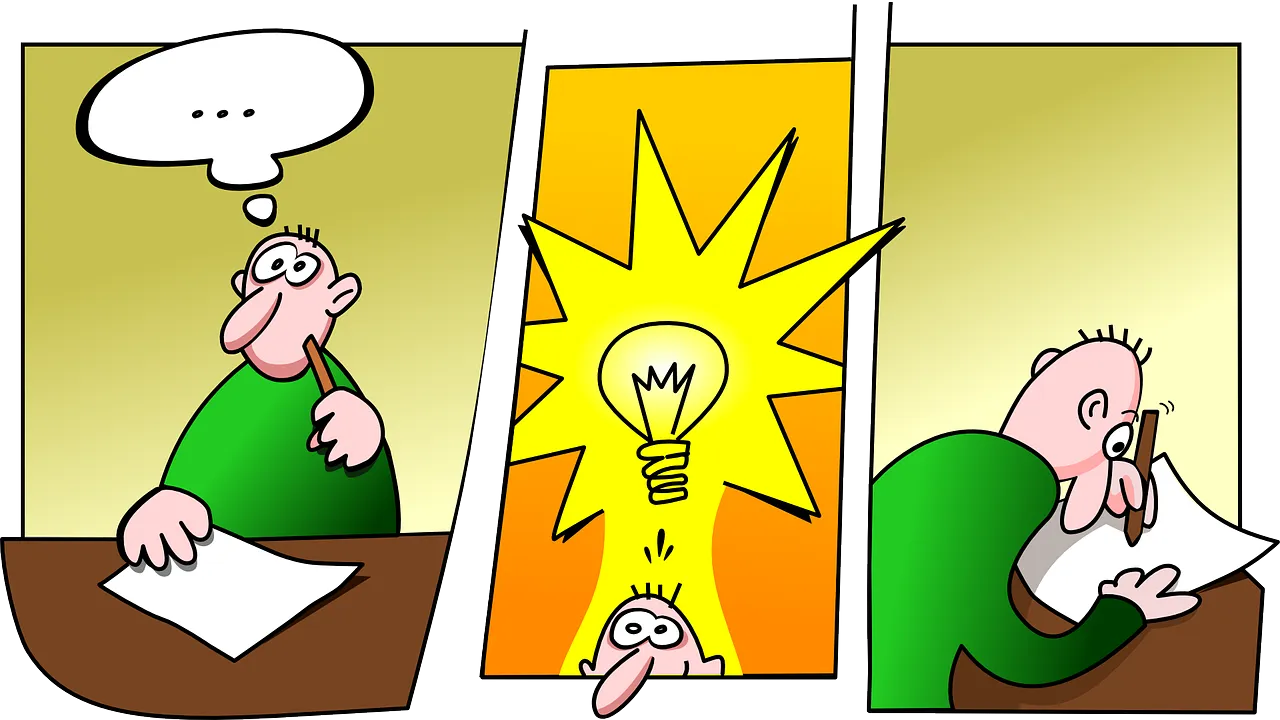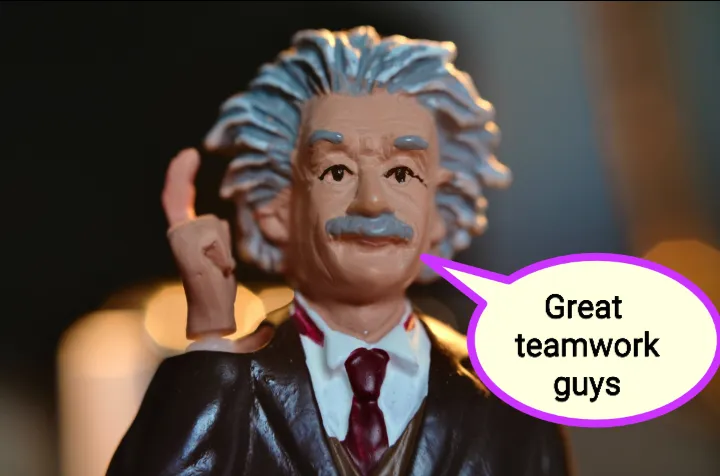For some time now, this kind of question has been bothering me, this is in part because of the advancement of computers/machines. As a matter of fact, topics relating to this kind of question has already been in existence but before we proceed, I would like to give some interesting remarks.
When we talk about invention, we talk about something new, which means the new concept or object wasn't yet in existence. From our experiences, inventions could be made by mistake or on purpose and in both cases past knowledge is needed. That may seem weird, particularly for inventions made by mistake. The truth is that when you invent something by mistake, you had an initial goal, with a well thought-out plan which in turn required past knowledge. The mistake arises because you haven't considered other possibilities.
But the question still remains, do we really invent anything?
When we invent something, it becomes new knowledge, to be able to dissect this problem and possibly find answers, we need to now focus on knowledge (stored information), since knowledge starts the process and also ends the process. Knowledge can be gotten from experience (empiricism) and also from reasoning (rationalism). Within rationalism, we have logic and intuition. So, I'm going to use a very simple example to simultaneously illustrate and explain those concepts.
For the first time, you see a ball, then you kick it and the ball moves. The whole event is an experience but knowledge rises from the experience when you are now aware of the fact that when you kick the ball it moves. Ok, let's now assume that this was your first ever experience as a human being, when the first thought that comes to mind is "every object that looks like the ball would move whenever i kick it", then this is knowledge is based on intuition, in other words, you already have knowledge of other objects like the ball without actually having any experience with them and it "naturally feels right". However, not everyone can have such thought as first thought, for another person, his first thought can be that "every object he kicks would move". Do you notice the difference between the two first thoughts ?
Now, the first one that thinks it's objects like the ball that moves when kicked is more intuitive than the latter - who thinks it's any object. It's is interesting to note that intuition can sometimes fail and this is when logic sets in. Logic is an extension of intuition, this is when correctness of the knowledge based on intuition is checked within the mind, this is when actual intelligence becomes pronounced. For the correctness to be checked, there has to be a well established knowledge/fact to serve as premises (starting point), together with certain rules. The well established fact can be gotten from experience or from reasoning. In the case of our previous example (kicking a ball), the established fact has to come from experience, as we are dealing with a real life object/phenomenon, which means there has to be other experiences so as to filter out unwanted thoughts and it's interesting to note that this is how science itself operates. Mathematics on the other hand deals with objects that are mental constructs and so therefore the established fact/knowledge comes from the mind itself and is mainly guided by the presence/absence of consistencies/contradictions. This is why you don't necessarily need to perform a physical experiment to test if a mathematical statement is true or false, your head can do the job.
But there seems to be problems if you actually look deep at the above explanations. Let's take knowledge from experience for example, it is mostly believed that when you are born your brain is like a blank sheet of paper (tabula rasa) and that every knowledge you get comes from experience. What if that may not be the case?
Have you noticed that we have this innate ability to classify objects and develop concepts, there's no object we would observe and wouldn't be able to classify it - if we didn't, how are we supposed to navigate our universe. When we are/were little children we have/had our own way of classifying and identifying objects, classification doesn't necessarily have to be the formal kind - the kind taught by society. In fact, the formal kind can also be traced to the mind of other people.
So, the question now is where does the knowledge on how to classify objects or build concepts actually originates from, if knowledge is always from experience ?
There doesn't seem to be an experience that specifically teaches us how to classify objects or build concepts, it happens that "we just know" how to do it - which I personally find very weird.
What if I told you that there's a way of resolving this paradox?
What if we don't actually gain knowledge from experience but rather we were already born with all the knowledge that there is?
In philosophy this is under what is called "innatism" and intuition appears to be strongly related to it - when we bring out concepts, it just naturally feels right. The purpose of experience in the world of innatism is to trigger the knowledge related to the said experience, that is, force the knowledge to come out from it's hiding place in our minds/head. It's like how a machine/computer works, it can only identify an object it's already familiar with. In our previous article about aliens being artificial intelligence beings, I told us that it's theoretically possible to have a machine/computer that can have all the knowledge of a conscious being in it's program and that it's programmed to give the right output for any given input. What if we are such machines ?
If that were to be the case, then we aren't much different from machines and consciousness may either be an illusion or machines already have them but not up to that of our level. One simple experiment to confirm this kind of innatism is if there exists an object in our universe that we can never ever classify or unable to build concepts for.
What this also means in this particular world of innatism is that we may not actually be inventing things per se, people we look up to due their innovative ideas may not be all that very special or much different from the rest of us or a machine, they just happened to have encountered the right experience(s) to trigger such ideas.
However, that doesn't necessarily mean what we have discussed so far is actually correct, we are just simply exploring other interesting possibilities. Perhaps, it appears we still have a very long way to go when it comes to understanding our reality, whatever the answers maybe the universe awaits us. 😉
For further reading
Could Extraterrestrials Actually Be Artificial Intelligence Beings? - If We Happened To Find Any
Thank you all once again for stopping by to read my jargons and also thank you @stemng, @lemouth and the @Steemstem team for your valuable supports.
Lastly, please don't forget to do the needful
Upvote
Comment
Reblog
If you enjoyed my jargons.



